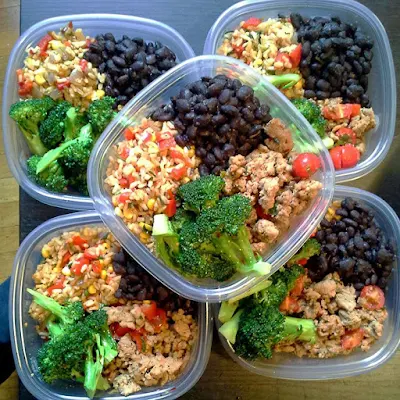If you've been into contest prep for any length of time, you know the drill: You bulk, then shred; you bulk, then shred again and so on, year after year. In the process, it's not unusual to gain 30-40 pounds bulking. And then comes that long, nasty, carb-free cut.
Fortunately, there's another way maybe a better way to get the contest physique you're after. Going on a series of short-term diets during your bulking phase can give you better results, help you enjoy contest prep more, and make the whole process a lot easier on your body and mind.
Too Short For Your Body To Adapt
Most post-bulking diet protocols go on for way too long, ranging from 8-24 weeks. The problem is that your body has time to adapt and learn to function with fewer calories per day. In the starvation mode that accompanies prolonged dieting, your metabolism slows. In the process, your body burns fewer calories, defeating the whole purpose of dieting.
Short-term diets, on the other hand, usually last 4-6 weeks short enough that your body doesn't go into full starvation mode. In the short term, running at your normal or near-normal metabolism while eating less helps you lose significant amounts of weight. Once you drop a few pounds, you can go back to bulking until it's time for your next short-term diet.
Short-term dieting may not be for you if you've done a lot of yo-yo dieting in the past. Repeated patterns of rapid weight loss followed by equally rapid weight gain can cause your body to enter semi-starvation. In this state, your metabolism runs slower than normal, making it hard for you to burn calories.
Maintain Lower Body Fat For Longer
Big bulks followed by big shreds; doesn't it make more sense to minimize fat gain in the first place? By taking a more nuanced approach to bulking and shredding, you can avoid those months-long deprivation diets, reduce the impact of dieting on your body, and stay closer to your target weight for longer.
Anyone who has ever tried to bulk knows that no matter how clean you eat or how much you work out, you're going to gain at least some fat. Some people try to get around this by doing "lean bulks," meaning, gaining weight without gaining fat. The ketogenic diet is a good example of this approach. Generally speaking, though, unless you're a beginner and seeing newbie gains, fat gain is part of the bulk game.
When you take the traditional contest-prep approach, you might start off your bulk at around 8-10-percent body fat for men or 17-percent body fat for women. You continue to bulk up until you're around 20-percent body fat for men and 27-30-percent for women. At this point, you'll be visibly heavier and without much muscle definition.
Make Your Bulk Phase More Productive
Instead, do a short-term diet when you're at about 15-percent body fat for men or 25-percent body fat for women, and you can minimize your total fat gain. Doing fewer, shorter diets keeps your body fat from increasing too much.
As soon as you gain 10 pounds, diet until you lose 5 pounds, then gain 10 more pounds, and cut back another 5 pounds. Do this three or four times throughout your bulk phase. By the time you're ready for your final cut, you'll still have gained significant weight, yet it'll be more muscle weight and less fat.
If you gain 20 pounds during bulking, as much as 15 of those pounds might be lean muscle tissue. Following the traditional approach, you might have to gain 30-40 pounds just to get that 15 pounds of lean muscle.
Avoid Months Of Difficult Dieting
Nobody likes dieting. It's hard work. You're always hungry. You feel tired a lot. And your cravings can consume your every waking thought. No wonder so many people give up without reaching their goals.
It's not that hard to start a diet. You're coming off long periods of eating whatever and whenever you want, after which eating less can seem like a refreshing change of pace.
This feeling of newness might last for 2-3 weeks before you start to miss all your old foods, but by then you only have a few weeks left to tough out. Compare this to the traditional cutting approach where you spend a quarter to half of the year in a calorie deficit, and short-term dieting seems like the smarter approach.




